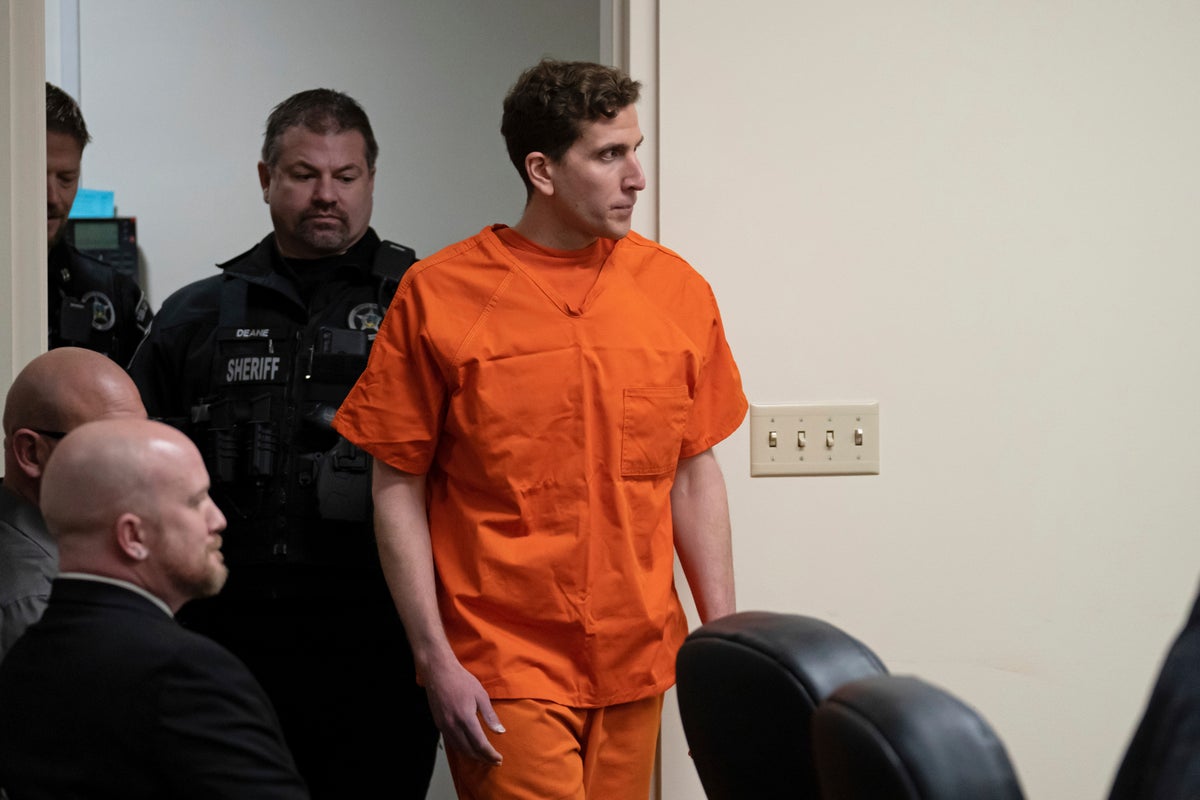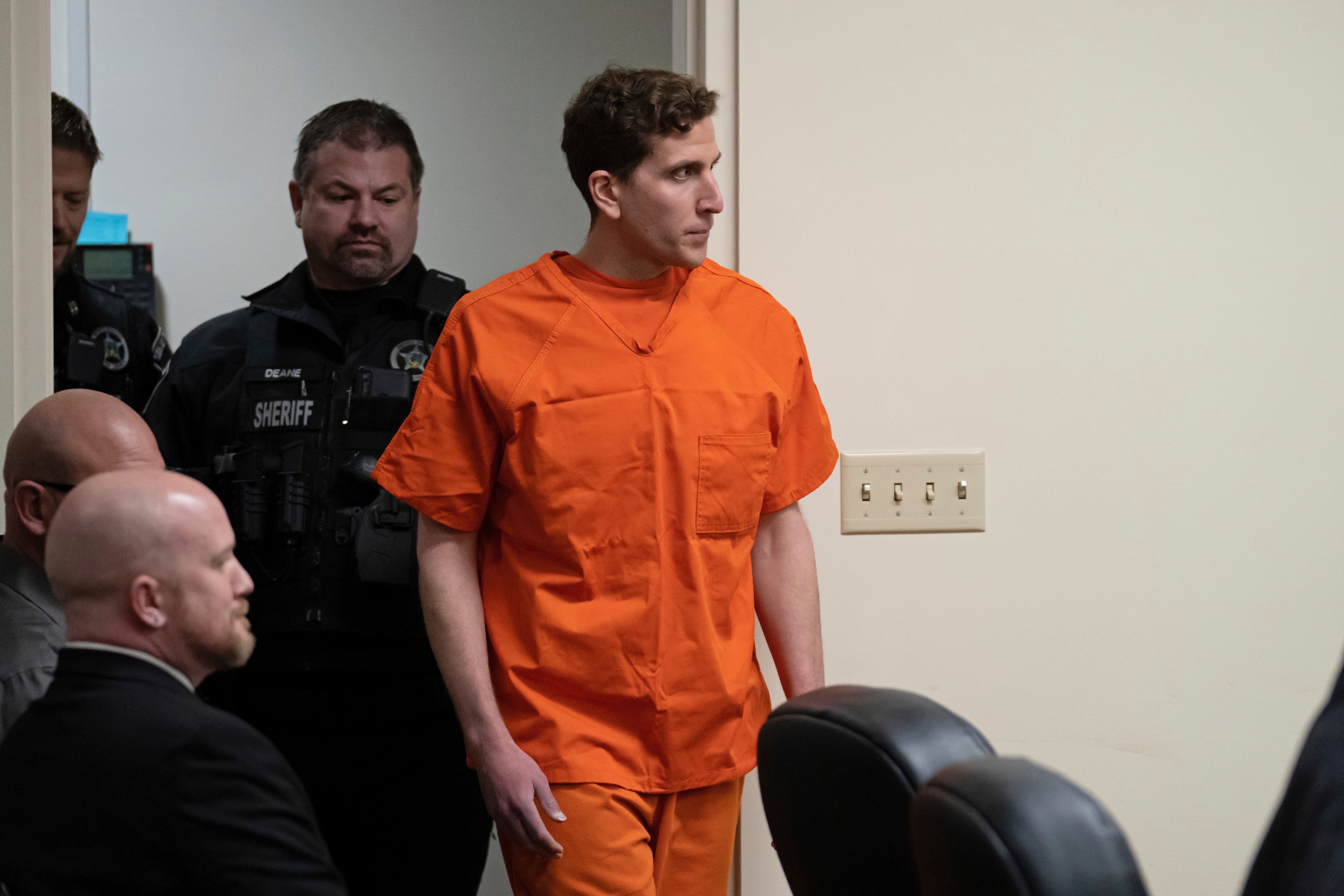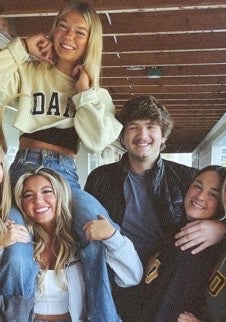
Suspected killer Bryan Kohberger made an offhand comment about the murders of the four University of Idaho students as he was extradited from Pennsylvania to Moscow to face charges in their killings, it has been revealed.
A law enforcement source told People that the 28-year-old criminology PhD student made small talk about the case to officers, saying that it was “sad what happened” to Kaylee Goncalves, Madison Mogen, Xana Kernodle and Ethan Chapin.
“He did say, ‘It’s really sad what happened to them,’ but he didn’t say anything more. He’s smarter than that,” said the source, who was involved in the accused killer’s extradition process.
Mr Kohberger seemed “really nervous” during the journey back to Moscow and spoke aloud to himself in an apparent effort to reassure himself, the source added.
“He seemed really nervous. He was narrating to himself everything that was happening,” they said.
“At one point, he was saying something to himself like ‘I’m fine, this is okay.’ Like he was reassuring himself that this whole thing wasn’t awful.”
Mr Kohberger has so far remained tightlipped about the brutal stabbing murders that he is accused of carrying out.
He did not enter a plea when he appeared in court in Idaho for the first time last week.
However, the attorney who represented him in Pennsylvania said that the suspect planned to fight the allegations and was “eager to be exonerated”.
He will return to Latah County Court in Moscow on Thursday morning for a status hearing.
The motive for the murders is unknown and it remains unclear why Mr Kohberger allegedly targeted the victims.
An attorney representing Goncalves’ family said that “no connection” had been found between the four students and the suspect.
However, cellphone data suggests that Mr Kohberger stalked the student home at least 12 times in the run-up to the night of the murders, according to the affidavit.

The exact dates and times of these instances were not revealed in the affidavit, which was released last week, but all bar one were in the late evening or early morning hours.
One incident was identified on 21 August, when the suspect was stopped by police just minutes from the home where he allegedly knifed the four students to death three months later.
A citation from Latah County Sheriff’s Office, obtained by The Independent, reveals that the traffic stop took place at around 11.40pm at the intersection of West Pullman Road and Farm Road in Moscow.
At the time of the murders, investigators believe Mr Kohberger turned his cellphone off in order to try to avoid detection.
However, cellphone data places him close to the home on King Road at around 9am on 13 November – suggesting that he returned to the scene of the crime just hours after allegedly murdering the four victims at around 4am.
As well as cellphone data, the affidavit reveals that other evidence also led them to arrest Mr Kohberger for the student murders.
Police said that his DNA was found on a knife sheath left behind at the scene by the killer.
A white Hyundai Elantra spotted at the crime scene at the time of the murders was also traced back to the suspect, the affidavit reveals.
One of the victims’ surviving roommates was also able to partially describe the killer to investigators after she came face to face with him in the aftermath of the murders.
Investigators believe the murders unfolded between 4am and 4.25am on 13 November when all four students had returned from nights out.
Two other roommates were also in the student home at the time of the attack but were left unharmed.
At around midday the next day, a 911 call was made from the phone of one of the surviving roommates alerting police to the bloody crime scene.
The affidavit has now revealed for the first time that one of the surviving roommates – Dylan Mortensen – came face to face with the masked killer as he left the home after killing her four friends.
In her terrifying account to investigators, she revealed that she heard the killer inside the home and heard what sounded like crying coming from one of her roommates.

At one point she heard a woman’s voice – believed to be either Goncalves or Kernodle – saying something to the effect of “there’s someone here”, before hearing a man’s voice saying “it’s ok, I’m going to help you”.
She then had a lucky escape as she opened her door to see what was happening and witnessed “a figure clad in black clothing and a mask that covered the person’s mouth and nose walking towards her”.
The man walked right past her and headed toward the back sliding glass door of the home.
The description she gave – a male with bushy eyebrows who was around 5 foot 10 tall or taller and was “not very muscular but athletically built” – helped lead investigators to Mr Kohberger.
The Washington State University PHD student and teaching assistant was arrested on 30 December in an early-morning raid on his family home in the Pocono Mountains in Pennsylvania, where he had gone to spend the holidays.
He was extradited back to Idaho last week to face charges and his white Hyundai Elantra was seized by investigators.
The murder weapon – a fixed-blade knife – is yet to be found.
As a criminal justice PhD student at Washington State University, he lived just 15 minutes from the victims over the Idaho-Washington border in Pullman.
He had moved there from Pennsylvania in August and has just completed his first semester.
Before this, he studied criminology at DeSales University – first as an undergraduate and then finishing his graduate studies in June 2022.
While there, he studied under renowned forensic psychologist Katherine Ramsland who interviewed the BTK serial killer and co-wrote the book Confession of a Serial Killer: The Untold Story of Dennis Rader, the BTK Killer with him.
He also carried out a research project “to understand how emotions and psychological traits influence decision-making when committing a crime”.
Now, he is facing life in prison or the death penalty for the murders that have rocked the small college town of Moscow and hit headlines around the globe.







